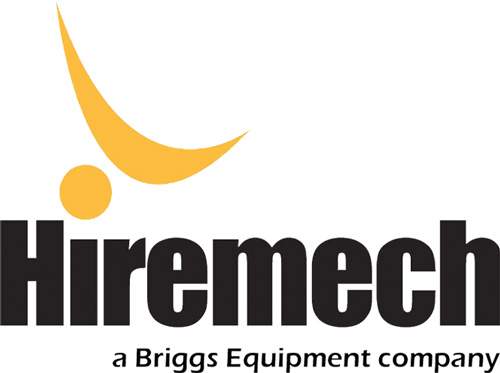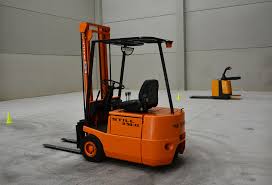When training to pass your forklift driving test, it is important to choose an accredited training provider like Hiremech, as this will guarantee that you will receive tutoring from an experienced, qualified instructor, and that your licence will be to the latest RTITB Accredited standards. Any existing or prospective employers can check the RTITB national database to confirm the validity of your certification for the equipment you have have been trained on.
All forklift training courses comprise of a written test taken after a formal lecture on the basics of functionality, safety and good working practice while operating a forklift. This test must be passed before a worker can be granted a forklift licence/certificate.
Of course, different criteria will apply depending on the type of forklift you want to operate – tests to gain the qualifications to drive more complex forklifts may require extended study time, but the following general questions will crop up on most tests…
Questions
1. If the forks are touching the floor, is it safe to drive the forklift truck?
2. Is it safe to use a mobile phone while operating a forklift truck?
3. Should you honk the forklift truck’s horn when passing an intersection?
4. When parking the truck, should you lower the forks until they touch the floor?
5. Does a forklift require an alarm when moving in reverse?
6. Are rear view mirrors necessary on a forklift truck?
7. Can employers evaluate the performance of their forklift operators every three years?
8. When loads obstruct the view of the operator, are they allowed to travel in reverse?
9. Should the operator reduce speed before turning?
10. When transporting a load, what is the maximum height the forks can be elevated from the ground?
11. Does the stability of the forklift truck suffer when it is lifting heavy loads at a considerable height?
12. Is it safe for colleagues to ride on a pallet while the forklift is moving?
13. Does the forklift need to be switched off for refuelling/recharging?
14. Should the Occupational Health & Safety Administrator (OSHA) perform a daily inspection before work is undertaken?
15. At the end of a shift, is it good working practice to lower the mast and forks until they reach the floor?
16. Should the brake be applied before exiting the forklift truck, even if it is stationary on a flat surface?
17. Can forklifts be driven forward at a slope of 10 degrees?
18. Should forklift training be specific to the type of truck the user will be operating:
19. Does tilting the mast help make the load secure?
20. Does the operator need to know all the information indicated on the load capacity plate?
21. Can only one passenger ride in or on a forklift?
Answers
1. No
2. No
3. Yes
4. Yes
5. Yes
6. Yes
7. Yes
8. Yes
9. Yes
10. Six inches
11. Yes
12. No
12. Yes
13. Yes
14. Yes
15. Yes
16. Yes
17. Yes
18. Yes
19. Yes
20. Yes
21. Yes
Practical training
After learning about health and safety and watching an instructional video, learners do a hands-on practical training session. It will require the driver to demonstrate the skills and knowledge they have learned during the lectures they have sat through. This part of the test can be workplace-specific, and will concentrate on the characteristics of the forklift, how to operate the truck safely, how to refuel or recharge the unit, how to inspect the unit prior to operation, and understanding the importance of pedestrian behaviours in the workplace. On the final day, each learner will take both a theory and practical assessment to put what they have learned to the test.
At Hiremech, our driver training packages provide RTITB accredited, industry-recognised qualifications. Training can be undertaken at our fully-equipped training centre or onsite at your place of work.
We offer training for powered pallet trucks, stackers, counterbalance forklifts, reach trucks, scissor lifts, order pickers, truck conversion courses and more. If you or your team need to pass your forklift driving test to operate a forklift in London, simply book a training course with Hiremech today by calling 020 8880 3322.

 020 8880 3322
020 8880 3322